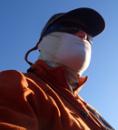FRESNO, Calif. (AP) — A U.S. District judge ruled late Thursday that water can be released from Northern California's Trinity Reservoir to prevent a salmon kill in the lower Klamath River, but the amount of water involved will be far less than the federal government initially asked for.
The ruling from Judge Lawrence J. O'Neill comes after farmers in California's San Joaquin Valley sued the federal government over the releases of water, saying they would be illegal and would further decrease the little water available to them for irrigation.
The judge had ordered the water releases temporarily stopped last week while he made a long-term decision.
He said in Thursday's ruling that in the week since, a change in environmental conditions and the federal position has meant that two-thirds less water than expected was required, making the decision easier and less harmful to farmers.
Environmental groups, fishing organizations and Indian tribes supported the release of the water, and the judge said the modified decision should leave both sides happy.
"All parties have prevailed in a significant, responsible way," O'Neill said in the ruling. "All is being done that can reasonably occur to prevent a major fish kill."
Advocates for the two sides, for the most part, agreed.
"The Trinity River is our vessel of life, and the salmon are our lifeblood," said Danielle Vigil-Masten, chairwoman of the Hoopa Valley tribe. "We applaud the decision to release this water to avert a fish disaster."
However, Vigil-Masten also emphasized the need for longer-term solutions to the water and salmon problems.
The San Luis and Delta-Mendota Water Authority, one of the groups that sued, declared victory over federal officials in the reduced water amount in the judge's order.
"Clearly the scientific justification they provided last week just couldn't hold up," the group said in a statement.
The water authority said it appreciated the decision but also cited the need for long-term answers for the fate of Klamath water and salmon.
The Trinity River is the main tributary of the Klamath. A large portion of Trinity water usually is sent south into the Sacramento River and is piped to farmers in the San Joaquin Valley through the Central Valley Project.
This year, officials expect a large fall run of salmon. But they also expect low water levels, leading to fears that tens of thousands of salmon in the Klamath could die before they spawn, as happened in 2002.
Next year, unless a very wet winter restores nearly empty reservoirs, farmers predict they might get little or no water — and the lack of Trinity River water would further reduce their deliveries.
REALTIME FLOWS  U. Kern: n/a cfs
U. Kern: n/a cfs
 L. Kern: 1341 cfs
L. Kern: 1341 cfs
 E.W: 312 cfs
E.W: 312 cfs
 U. Owens: 108 cfs
U. Owens: 108 cfs  L. Owens: 496 cfs 09/02/19 1:15 PM PST
L. Owens: 496 cfs 09/02/19 1:15 PM PST
Klamath river news
3 posts
• Page 1 of 1
Re: Klamath river news
I am planning on fishing the Trinity beginning on October 1 so this is good news. Thanks for the up date.
EVERY DAY A VICTORY, EVERY YEAR A TRIUMPH
- fflutterffly
- Posts: 1787
- Joined: March 16th, 2008, 6:50 am
- Location: Los Angeles, CA
Re: Klamath river news
I may be up there late September to visit the boy at HSU. Maybe I'll bring the 1wt along...
"We're a cross between our parents and hippies in a tent...."
180 Degrees South
180 Degrees South
-

WanderingBlues - Posts: 5299
- Joined: December 2nd, 2009, 10:49 am
- Location: Living in a Tin Can

